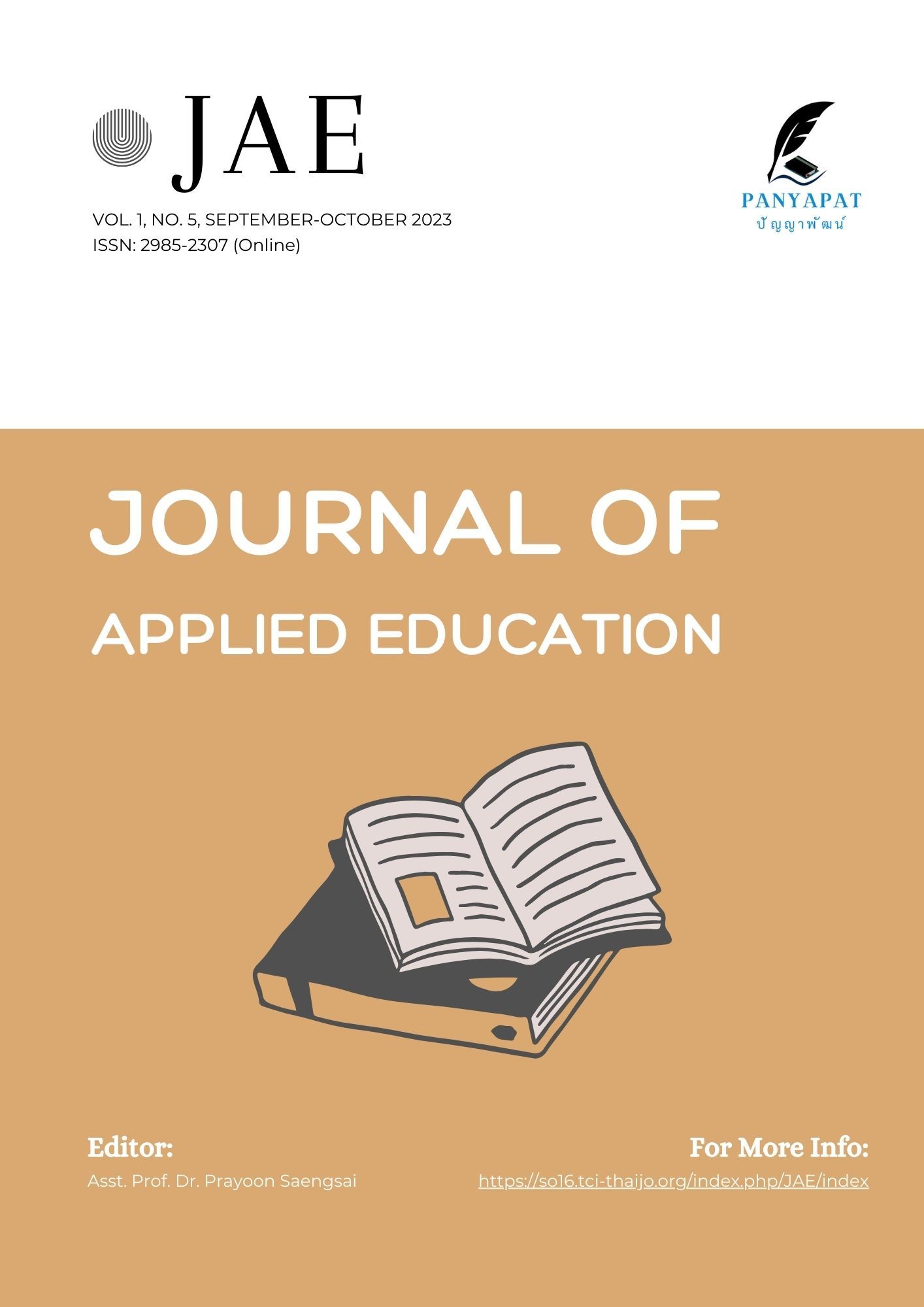A Confirmatory Factor Analysis of Buddhist Leadership of Vocational College Administrators under the Office of the Vocational Education Commission
Main Article Content
Abstract
The purposes of this research were to study the Buddhist leadership characteristics and to analyze the confirmatory factor on Buddhist leadership of vocational college administrators under the office of the vocational education commission. This research was descriptive research. The samples used consist of 180 northeastern vocational college administrators. The research instrument was a questionnaire on Buddhist leadership characteristics. The data was analyzed by descriptive statistic and second order confirmatory factor analysis. The research results were as follows: The characteristics of Buddhist leadership of northeastern vocational college administrator of 3 factors; 1) self-leading, 2) team leading, and 3) organization leading. Buddhist leadership had the characteristics of self-leading the most, team leading, and organization leading, respectively. The confirmatory factor analysis found that the model was fitted with empirical data. The results of the model validation indicated the GFI = 0.98, AGFO = 0.97. The most important factor loadings were composite of team leading, and organization leading, respectively.
Article Details

This work is licensed under a Creative Commons Attribution-NonCommercial-NoDerivatives 4.0 International License.
References
นงลักษณ์ วิรัชชัย. (2555). การวิเคราะห์องค์ประกอบเชิงยืนยัน. วารสารวิจัยและพัฒนาหลักสูตร, 2(1), 68-74.
นิตยา เสาหงษ์. (2563). สมรรถนะการบริหารงานวิชาการในศตวรรษที่ 21 ของผู้บริหารสถานศึกษาตามโครงการวิทยาลัยเทคโนโลยีฐานวิทยาศาสตร์ สังกัดสำนักงานคณะกรรมการการอาชีวศึกษา. กรุงเทพฯ: มหาวิทยาลัยนอร์ทกรุงเทพ.
พระธรรมโกศาจารย์ (ประยูร ธมฺมจิตฺโต). (2549). พุทธวิธีบริหาร. กรุงเทพฯ: มหาจุฬาลงกรณราชวิทยาลัย.
พระธรรมปิฎก (ประยุทธ์ ปยุตฺโต). (2545). ภาวะผู้นำ: ความสำคัญต่อการพัฒนาประเทศ. นครปฐม: ธรรมสภา.
พระมหาวุฒิชัย วชิรเมธี (ว.วชิรเมธี). (2552). ภาวะผู้นำ: จากเนลสัน มันเดลา โอบามาแห่งทำเนียบขาว. กรุงเทพฯ: สถาบันวิมุตตยาลัย.
พระมหาสมพร สุริโย. (2553). รูปแบบความสัมพันธ์โครงสร้างเชิงเส้นของปัจจัยที่มีอิทธิพลต่อประสิทธิผลของโรงเรียนพระปริยัติธรรม แผนกสามัญศึกษา. (ปรัชญาดุษฎีบัณฑิต, มหาวิทยาลัยราชภัฏเลย).
มหาวิทยาลัยมหาจุฬาลงกรณราชวิทยาลัย. (2539). พระไตรปิฎกฉบับภาษาไทย. กรุงเทพฯ: โรงพิมพ์มหาจุฬาลงกรณราชวิทยาลัย.
วรภาส ประสมสุข และ นิพนธ์ กินาวงศ์. (2550). หลักการบริหารการศึกษาตามแนวพุทธธรรม. วารสารศึกษาศาสตร์, 18(2), 63-83.
วไลพร บุษบก. (2562). องค์ประกอบสมรรถนะของผู้บริหารวิทยาลัยเทคโนโลยีและอาชีวศึกษาเอกชน สังกัดสำนักงานคณะกรรมการการอาชีวศึกษา. (ปรัชญาดุษฎีบัณฑิต, มหาวิทยาลัยราชภัฏนครปฐม).
สัมฤทธิ์ กางเพ็ง. (2557). ภาวะผู้นำเชิงพุทธ. (พิมพ์ครั้งที่ 2). มหาสารคาม: อภิชาติการพิมพ์.
สำนักงานคณะกรรมการการอาชีวศึกษา. (2566). รายงานประจำปี 2565 สำนักงานคณะกรรมการการอาชีวศึกษา กระทรวงศึกษาธิการ. กรุงเทพฯ: วิทยาลัยสารพัดช่างพระนคร.
Cronbach, L. J. (1990). Essentials of psychological testing. (5th ed.). New York: Harper Collins Publishers.
Northouse, P. G. (2018). Introduction to leadership: concept and practice. (4th ed.). Thousand Oaks, CA: Sage.
Pietersen, W. (2010). Strategic Learning: How to be smarter than your competition and turn to insights in to competitive advantage. Hobogen, NJ: John Wiley & Sons.

